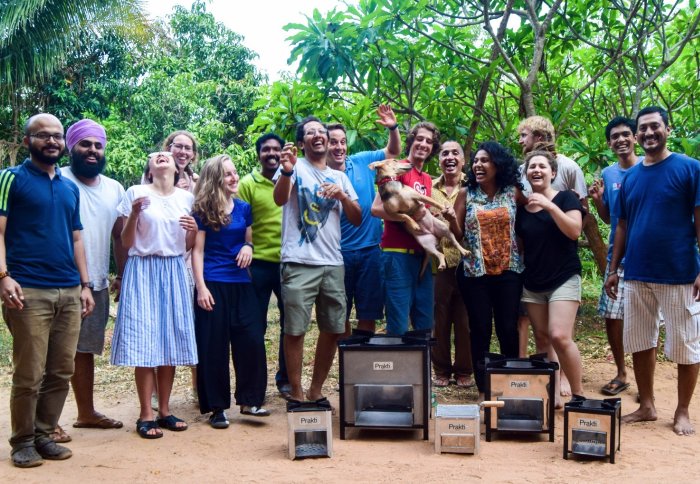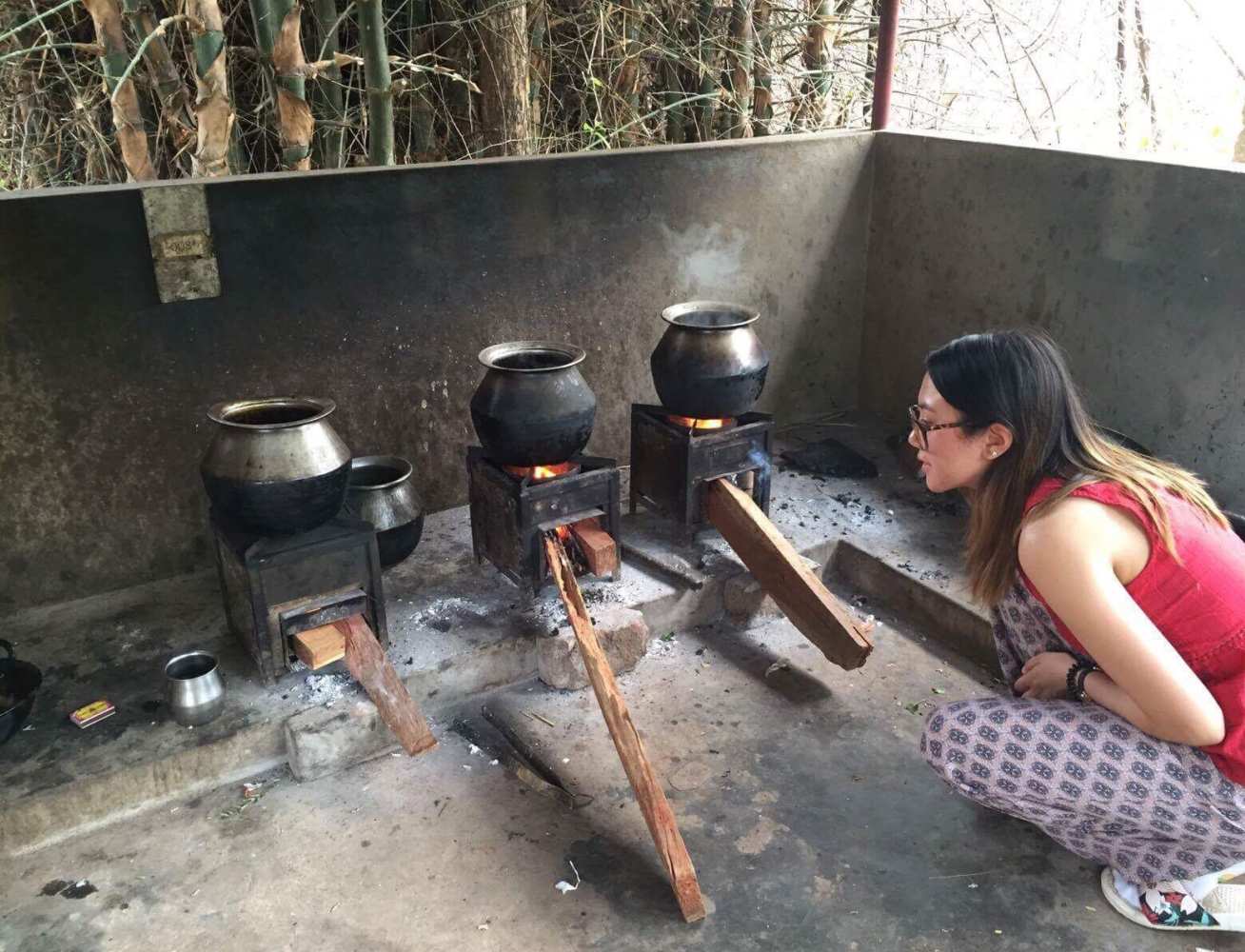Horizons students explore world’s most challenging topics

Student volunteers in Pondicherry, India
Students taking part in Imperial Horizons have been inspired to travel far and wide, seeking answers to difficult global questions.
In the second of a series of articles featuring Imperial Horizons staff and students, the College highlights the success of Elysia Lucas and Mahamood Bin Mubarak.
The innovative Global Challenges Project offers undergraduates the opportunity to pursue independent study on a topic of their choosing. Students receive supervision from a member of staff in individual and group-based seminars during the 20-week course. Some students take the module for credit, others for extra-credit.
Dr Roberto Trotta, Director of the Centre for Languages, Culture and Communication (CLCC), said:
"One of the main aims of Imperial Horizons is to empower our students to explore their interests outside their chosen academic discipline, and to develop communication and cross-disciplinary collaborative skills.
“Through Global Challenges, Elysia and Mahamood have been inspired to tackle some of the most intractable questions on the planet, and this experience has had a transformative impact for them both. This is a testament to the passion and abilities of our students, as well as to the dedication and teaching skills of our Global Challenges lecturers, Dr Elizabeth Hauke and Dr Mark Pope."
Dr Mark Pope, Global Challenges Teaching Fellow, said: “It is very rewarding to see students develop academically in areas where they possess such a keen personal interest and have valuable real-world experiences to reflect on. We facilitate this by providing opportunities for student-led research projects, and Elysia and Mahamood are just two of the success stories.”
Inclusivity in international development
4th year Chemical Engineering student, Elysia Lucas, focussed her project on the empowerment of women in environmental sustainability and development.
The issue of gender inequality and mistreatment of women is still prevalent worldwide and academics and NGOs are increasingly focussing their research and efforts on the environmental concerns associated with this, such as deforestation and climate change.
Elysia’s research sought to prove a link between gender inequality and environmental degradation, and provide solutions to major sustainable development issues that need urgently addressed. Elysia used the United Nations Sustainable Development Goals (UN SDGs) as a framework for this.
Her research targeted problems within the sectors of water and sanitation, energy consumption and production, climate change, marine resources, and land.
Shortly prior to her enrolment on Horizons, Elysia spent the summer of 2017 as an Engineers Without Borders volunteer on a placement in Pondicherry, India. She also worked on a research project at a social enterprise called Prakti, which develop, manufacture and distribute biomass cookstoves. Elysia’s research during the summer involved testing potential materials for the cookstove to increase durability.

Elysia said: “I’ve really learnt a lot and developed my independent research skills. I’m actually staying on at Imperial to do a PhD in quite an interdisciplinary subject - the interface of Chemical Engineering and policy, particularly resource management policy and energy and food provisioning.
“I wouldn’t have known that I was interested in incorporating social elements into my future work if it wasn’t for Imperial Horizons and the Global Challenges Project”.
Peace in the Middle East
4th year Biotechnology with Management student, Mahamood Bin Mubarak, did his project on the feasibility of a two-state solution for the Israel-Palestine Conflict.
“Through Global Challenges, Elysia and Mahamood have been inspired to tackle some of the most intractable questions on the planet, and this experience has had a transformative impact for them both." Dr Roberto Trotta Director of the Centre for Language, Communication and Culture
Mahamood engaged enthusiastically in researching the history of the conflict and the current situation on the ground. During his research, he attended debates in the House of Commons and met parliamentarians such as Andy Slaughter MP, the Secretary of the Britain-Palestine All-Party Parliamentary Group. He also engaged with the Palestinian Solidarity Campaign in the UK.
After completing the project, Mahamood self-funded and organised a visit to Aida Camp, a refugee camp in Bethlehem. Mahamood valued his time there greatly and witnessed real daily life in the camp by living with a family there. He also visited both Palestinian and Jewish areas of the city of Hebron.
Now Mahamood has returned to the UK and continues to use his project findings to passionately engage with this topic. During the 2017-18 academic year Mahamood also earned praise for his role as class representative for the Imperial Horizons Staff-Student Committee.
Find out more
In 2017-2018, 4,574 undergraduates enrolled on the Imperial Horizons programme.
Course feedback consistently demonstrates that Imperial Horizons supports students to place their studies in a wider context and improve their employability.
2018-19 enrolment begins for incoming 1st year students on 3 September, with an Open Day on 5 October. Enrolment is closed for all other students, but applications may be considered on a case-by-case basis.
Article text (excluding photos or graphics) © Imperial College London.
Photos and graphics subject to third party copyright used with permission or © Imperial College London.
Reporter
Murray MacKay
Communications Division